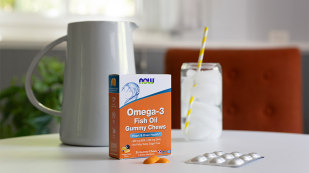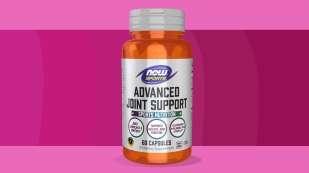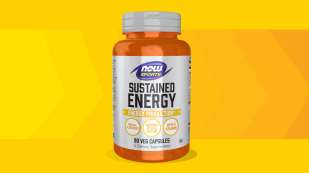Use coupon code SATIVA with your purchase of $30 or more for a free†
Vitamin C & Oryza Sativa Gentle Scrub5 Sports Nutrition Tips to Optimize Performance

Author: Dana Angelo White, MS, RDN, ATC
The hard truth is that injuries can and do happen – especially with high volume of intense training. Good habits, consistency and proper fueling not only optimize performance, but they can also help prevent the incidence and severity of injuries. Committing to these 5 sports nutrition practices can help reduce your risk of being sidelined and ultimately help optimize performance.
1. Calories COUNT
Under-fueling and over-training are big contributors to increased risks of injury and illness. Failure to take in enough calories to fuel performance on a consistent basis can dramatically increase your chances of getting hurt. Getting a steady intake of healthy calories from nutrient-rich protein, carbs and fat helps to ensure athletes are getting what they need to fuel performance, recover from training, and prevent injuries.
2. Give Muscles What They Need
Make food choices that help support blood flow to muscles and limit inflammation. Protein, iron and antioxidants from lean meat, poultry, fish and legumes, fruits and vegetables are important sources to prioritize daily to reduce the risk of injury. Meat and poultry also possess beta-alanine – an amino acid that can help delay on the onset of muscle fatigue during strenuous exercise.*
3. Hydration – with Electrolytes
As little as a 2% decrease in body weight from dehydration has a negative impact on both cognitive and physical performance. A consistent intake of fluid and an emphasis on electrolyte replenishment after exercise allows for optimum recovery and less muscle fatigue and soreness.* Estimate baseline fluid needs by aiming to drink half your weight (pounds) in fluid ounces per day - but the more you sweat, the more you need to replace.
4. Recovery on Repeat
A consistent recovery routine is one of the best things athletes can do to help avoid injuries. Eating a meal or snack of protein and carbs, along with fluid and antioxidants helps to support repair of healthy muscle fibers, re-stock energy stores, replenish fluid and electrolytes.*
5. STACK it up!
Good pre- and post-workout fueling are to crucial in helping to avoid injury and there are some key supplements to reach for before, during, and after exercise to help keep you performing at your best:

Beta-Alanine
Take 2 capsules 2-3 times per day – spreading out will help reduce possible tingling side effects.

Effer Hydrate
Dissolve 1 tablet in 16 fluid oz of water before, during or after exercise to help replenish fluid and electrolytes.

Creatine Monohydrate
Use 5 grams a day dissolved in at least 8 fluid oz of liquid of choice every day.

References
-
Logue D, Madigan SM, Delahunt E, Heinen M, Mc Donnell SJ, Corish CA. Low energy availability in athletes: a review of prevalence, dietary patterns, physiological health, and sports performance. Sports Med. 2018;48(1):73-96
-
Turnagöl HH, Koşar ŞN, Güzel Y, Aktitiz S, Atakan MM. Nutritional considerations for injury prevention and recovery in combat sports. Nutrients. 2022;14(1):53.
-
Bonilla DA, Pérez-Idárraga A, Odriozola-Martínez A, Kreider RB. The 4r’s framework of nutritional strategies for post-exercise recovery: a review with emphasis on new generation of carbohydrates. IJERPH. 2020;18(1):103.
-
Huerta Ojeda Á, Tapia Cerda C, Poblete Salvatierra MF, Barahona-Fuentes G, Jorquera Aguilera C. Effects of beta-alanine supplementation on physical performance in aerobic–anaerobic transition zones: a systematic review and meta-analysis. Nutrients. 2020;12(9):2490.
-
Fernández-Landa J, Santibañez-Gutierrez A, Todorovic N, Stajer V, Ostojic SM. Effects of creatine monohydrate on endurance performance in a trained population: a systematic review and meta-analysis. Sports Med. 2023;53(5):1017-1027.
*These statements have not been evaluated by the Food and Drug Administration. These products are not intended to diagnose, treat, cure or prevent any disease.











